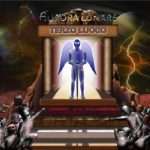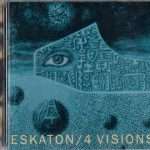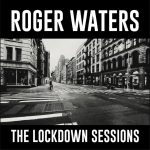I Giganti – Terra In Bocca (1971/2009)

Artist: I Giganti
Album: Terra In Bocca
Genre: Progressive Rock, Symphonic Prog, Rock Progressivo Italiano
Label: Belle Antique
Year Of Release: 1971/2009
Quality: FLAC (tracks+.cue)
Tracklist:
1. Largo Iniziale – 3:28
2. Molto Largo – 2:13
3. Avanti – 3:42
4. Avanti Tutto-Brutto Momento-Plim Plim – 4:33
5. Plim Plim Al Parossismo-Delicato Andante – 3:13
6. Rumori-Fine Incombente – 6:12
7. Fine Incombente-Allegro Per Niente – 6:04
8. Tanto Va La Gatta Al Lardo-Su E Giù – 7:44
9. Larghissimo-Dentro Tutto – 4:14
10. Alba Di Note-Rimbalzello – 1:27
11. Rimbalzello Compiacente-Ossessivo, Ma Non Troppo-Fine – 3:25
Personnel:
– Giacomo “Mino” Di Martino / guitar, vocals
– Francesco “Checco” Marsella / piano, organ, Mellotron, vocals
– Sergio Di Martino / bass, guitar, vocals
– Sergio Enrico Maria Papes / drums, Fx, vocals
With:
– Marcello Dellacasa / guitar
– Gigi Rizzi / guitar
– Ares Tavolazzi / guitar, bass
– Carmelo La Bionda / acoustic guitar (uncredited)
– Michelangelo La Bionda / acoustic guitar (uncredited)
– Vincenzo Tempera / organ, piano
– Ellade Bandini / drums
I Giganti were basically a vocal quartet, active since 1964. They were part of the “Italian beat” scene until 1971, when they decided to change their musical direction and released their only progressive effort, “Terra in bocca (Poesia di un delitto)” = “Soil In The Mouth (Poetry of a Crime)”, a complex concept-album about “mafia”. The lyrics were written by the journalist Piero De Rossi and, according to an article that you can find on the official website of the band, they were inspired by an interview with an old inmate. The music was composed by Vince Tempera and interpreted by the band with the help of some great guest musician. This album was conceived as a rock opera and it was supposed to be performed in the theatres, nevertheless in 1971 it was boycotted by the media and was absolutely unsuccessful. So, after a while, the band split up, overwhelmed by disappointment. Well, I fear that is not easy to explain to people living out of Italy why this excellent work was boycotted and censored by the media . Lyrics are about a murder committed in 1936 in a village of Sicily and are quite poetic and inspired, but “mafia” was a hard topic to deal with then.
«In 1960 the Italian government not only wasn’t concerned by mafia but it used to deny its existence. Mafia was and is a system that in Sicily contain and rules the economical interests and the power of a class that we can call approximately “borghese” (upper middle class). Mafia doesn’t rise and grow in the absence of the State, when the powers of the State and of its institutions are feeble or completely missing, but inside the State. Mafia is a “parasitical borghesia” – “una borghesia che non imprende ma soltanto sfrutta” (an upper middle class that doesn’t undertake but only exploits)». Leonardo Sciascia wrote these words in 1972 as an introduction to a new printing of his novel “Il giorno della civetta” (The Day Of The Owl) . All in all reading novels could be more enjoyable and instructive than reading many other “serious” works about Italian mafia. So, if you really want to get in the mood of this album and to understand what “Terra in bocca” is about, I suggest to read some novels like “The Day Of The Owl” and “To Each His Own” by Leonardo Sciascia or some novels by Andrea Camilleri.
Actually, there are two different versions of this album. «Rare to find in its original issue (especially with the poster) on RiFi, “Terra in bocca” has recently been reissued by Akarma on vinyl, and this reissue also includes a song from their last single. The unusual cover and poster were designed by Gianni Sassi and remind the style of his later works with Cramps. The Vinyl Magic CD issue of “Terra in bocca” exists in two different forms, the first one was released in 1989 and is curiously different from the original LP, probably coming from a demo tape. The total length of the album is 44:11 minutes, and opposed to the final version, this sounds less rich and orchestrated but more intense at times. This first reissue also included a miniature reproduction of the original poster. A second issue from 1993 (almost identical to the first in the CD cover, though with a different disc label), has a 46:44 minutes length and is presumably taken from the original masters. This doesn’t include the mini-poster» (quote from Italianprog.it). I like both versions, but I will base my review on the VM2000 Records version (VM CD 013), distributed by BTF, that is the “demo” one and lasts 44:11 minutes. The lyrics of the first part here are slightly different from the “original” version (with more recitative vocal parts) and the long instrumental introduction is missing.
The album begins with a simple acoustic guitar arpeggio and with vocals introducing the main theme. The singing voice “plays the part” of a friend of a murdered boy and describes the scene of the crime. “They found you stretched at full length / With four bullets planted in your chest / They shot you treacherously / They didn’t let you suspect anything / Now you’re laying without your shoes / In a hawthorn bush / While the boats that remember you since you were a child are sailing on the sea / Somebody’s already running down the alley / While the police passing by / Carry your body without life / To your house still asleep.” On this version of the album the first three minutes seem to come out from an album of a singer-songwriter, just guitar and vocals and a theme quite easy to play and sing with friends around a bonfire. Then comes the first recitative part. “You were my best friend, I remember all of you / This morning I woke up early because I couldn’t sleep / And walking again over your last day’s steps / I’m on the beach and I’m staring at the boats that come back with the lights off. On that day our village was awakening / As ever, as every day.”
Then the simple musical structure give way to a more fragmented and complex part where suggestive harmony vocals describe the village and his climate of daily violence and hypocrisy. The four members of the band share the vocal parts (some recitative and in form of dialogue) that are intertwined with short instrumental breaks. The music underlines the strength of the lyrics. “In the whole village there are only hundred houses / A big church with the bell tower / And a pub without pretension / There are only hundred houses in the village / It is so curled up that it seems a courtyard / Four narrow alleys that lead to the square / One woman, two women, one old man, one child with the jugs on their heads / A long procession goes down to the centre of the village just to buy water.”. In the village the Municipality has been promising an aqueduct for twenty years, but the water never comes. There are two families that share the power (speculation on labour, on building trade, on citrus fruits and fish export) and only because of prestige reasons they contend to each other the business of water distribution. “The patriarchs of two families / As they were two Nations / Fight thousands battles / They have been enemies for generations. Monday: shots in the fish-market / Tuesday: they blew up a house with TNT / Wednesday: in the country a shepherd was murdered / Thursday: they threw down the tank truck from the dock / Friday: they found the cistern polluted / Then on Saturday all the village was without water / But on Sunday everybody goes to the square to celebrate the Saint of the day / Everybody greets, everything’s O.K.”
After another instrumental break, featuring a good electric guitar solo, the voice playing the part of the friend of the victim comes back describing the funeral. “Then in the village white of sun / Your funeral silently streams / People cry, the violets blossom / And a girl get sick.” The girl getting sick is the girlfriend of the murdered boy. Then a beautiful melody breaks in, introducing a struggling love theme with vocals soaring upon an acoustic guitar pattern. “You, you full of sun / She, she white of salt / A sunset that was dying into the sea / That’s how you fell in love each other. On Sundays you were looking for her glance among the people in the church / She was stealthy smiling, fearing God’s blame.” At one moment the love theme is broken by a dramatic recitative part in form of dialogue bringing a sense of impending tragedy. Then the love theme starts again concluding the first part of the album.
The second part opens with an instrumental introduction with electric guitar in the forefront that leads to a dramatic mood. “A bells’ lament breaks in thousands sounds / Slow and gloomy magic that doesn’t let sleep anybody in the village / When I was talking about your father / And about the tragedy of a village where “omertà” rules / You used to withdrawn into silence and you didn’t almost speak at all / Yes, in your innocent glance there was only ingenuity / You full of sun / She white of salt / These imagines are for me souvenirs / Of a fragile love / Of a simple love / Of your desperate love / That doesn’t want to die / Stubborn like a donkey / Violent like a storm / Fragile like a scary child.” The contrast between the beautiful melodies drawn by the harmony vocals and the bitter words of the lyrics could seem strange, but the result in my opinion is quite good . “Misery brings in his womb violence like a son / That will have to eat up all the good to grow up / Leaving only the evil.”
After 6:15 comes in a voice “playing the part” of the father of the murdered boy. The father was trying to find the water by himself digging in his farm. “Someone then gave me advice to mind my own business. I answered them to go away / I do what I like, this ground is my home / They threatened me and they wounded my pride / I lied because of my honour and I shouted in their face / I found the water and I’m going to give it for free to everybody.” Through the voice of the father you can see the motive of the crime as the final point of a “crescendo” of violence. “Then I found my mule slaughtered / Then they burn my barns / Someday after they cut down my vineyard / Just to frighten me, to frighten me / No no no I won’t give up.” So, searching for water was an act of rebellion and the murder of the boy was the punishment for the rebellion against power in the village. After an instrumental section, the voice of the father get filled with despair and remorse. “When they found your body / Without shoes without life / Your black eyes wide open in the void / In front of the death took a photograph of the fear / When they found your body / Without shoes without life / In your mouth still open to invoke for the last help / There was no breath but only soil.” The reflections of the father watching the dead body of his son are highly dramatic and well supported by the music. “Everybody is silent now / The house is crowded / People pray while crying / For each prayer one rose / They covered you with roses / Sitting on a chair I’m watching everything / But I’m not so brave to look at you / Who have I to thank / For this dead son / For this pain / For my pain / For this.” Then the remorse gives way to rage and to the impending vengeance. “It will remain only / Only my remorse / Like a shadow / It won’t leave me / It will scream in the night / In the silence of the night / Slowly it will destroy me / It will destroy me / I’m crying, I’m crying, I’m crying / I know who I have to thank / Now I know what I have to do / Yes, I know who I have to thank / Now I know what I have to do.”
“Of course he knows the killer / And he’s already waiting for him at the crossroad / And when the killer passes along the ditch / He shoot him into the face and so be it.” In the following section the voice of the friend comes back to tell the end of the story in a recitative part. “Then your father gave himself up to the police / But from the jail he let us know / That he would have liked / You were buried in his farm / Near his home in his field / When we started digging that ground / Something extraordinary happened / The soil begun to get wet / More and more, more and more / Streams of water like blood in the veins wet that arid ground / Your father was right / He lost a son but he found the water / Yes, but if your father was right, what was your reason?…” In the booklet you can find an excerpt from a poem of the Italian poet Gabriele D’Annunzio describing the water gushing out from a source. A little message of hope in a dramatic story of hate and violence.
The reprise of the opening theme concludes the album. “How many hopes how many illusions / You had on this world / They killed you without a reason / As they would have killed a soldier in war / They found you stretched at full length / With four bullets planted in your chest / You thought you were almost immortal / But you died in a common way / When you were just sixteen”.
“Terra in bocca” is a piece of poetry dressed up in a progressive rock suit. No need for coarse language to describe violence, the word “mafia” is never pronounced. Nevertheless, poetry and progressive music in the Italy of 1971 were a kind of act of rebellion. In my opinion this album deserves the status of masterpiece.
Review by andrea, progarchives



